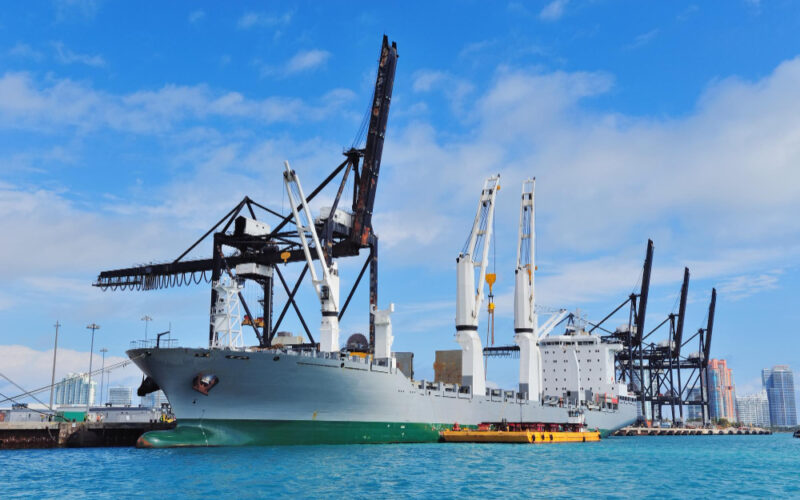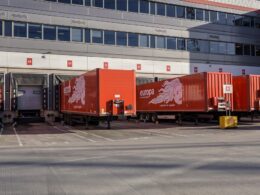In today’s interconnected world, activities at sea hold a crucial position in the global economic landscape. This exploration focuses on the essential facet of maritime dynamics, specifically its role in enhancing efficiency and security in modern maritime operations.
The Fundamental Role of Seaports in Worldwide Commerce
Seaports form the lifeline of international trade. These hubs, boasting complex systems and numerous stakeholders, significantly contribute to economic structures both at the local and global levels. Since antiquity, these centers of commerce have been evolving to meet the ever-changing demands of global trade.
In this intricate matrix, streamlined international trade and compliance play a vital role. Adherence to international laws and regulations is a legal necessity and crucial in optimizing operational performance. Technological advancements can aid in regulatory compliance, consequently enhancing the efficiency of international trade. Trust is fostered when maritime hubs comply consistently, promoting a smoother flow of global commerce.
Deciphering Seaport Dynamics
Maritime dynamics involve the myriad of operations occurring within seaports. Cargo handling, vessel movements, logistical coordination – all these elements form a part of this diverse spectrum. When these dynamics operate efficiently, processes become more streamlined, increasing productivity and profitability.
The Obstacles in Maritime Dynamics
Operational inefficiencies can create daunting bottlenecks. An example would be extended cargo handling times, which escalate operational costs. Security threats such as piracy or cybercrime introduce additional complexity, causing potential disruptions. Moreover, environmental challenges cannot be overlooked, as they pose significant risks to sustainable maritime operations.
Embracing Modern Technology in Seaport Operations
Emerging technologies are game-changers in the world of seaport operations. The likes of the Internet of Things (IoT), Artificial Intelligence (AI), and Blockchain are actively reshaping the concepts of efficiency and security in modern maritime operations. Such technological strides enhance efficiency and provide robust tools to combat security threats.
Boosting Efficiency in Maritime Operations: Strategies and Approaches
A multi-pronged strategy is essential for enhancing operational efficiency. Intelligent resource allocation, cutting-edge scheduling, and process automation can drive up efficiency significantly. Furthermore, learning from the best practices of high-performance maritime hubs can offer invaluable insights. In this scenario, regulatory support plays an essential role in driving efficiency.
With the recognition of its significance in global commerce, support grows for shipping. Governments and stakeholders alike have increased their backing for the shipping industry, resulting in a surge in infrastructure development and the adoption of new technologies. This encouraging trend is driving a shift towards more efficient and secure operations.
Drawing Parallels Between Maritime Dynamics and Residential Moving
There exists an intriguing parallel between maritime dynamics and residential moving. Efficiency is paramount in packing and transporting items while relocating, so seaports must manage and move cargo efficiently. As our friends at Transparent International NYC say, a well-orchestrated plan is essential to ensure goods’ safe and timely arrival.
Safeguarding Seaport Security: Measures and Technologies
Maintaining security in maritime operations is of paramount importance. Authorities are tasked with proactively addressing potential threats such as terrorism and cybercrime. Deploying advanced technologies like AI surveillance and robust cybersecurity measures can help deter these threats. Ensuring security is a collective effort, requiring cooperation between operators, shippers, and authorities.
The maritime sector has recently seen a surge in tech funding, with the industry receiving a substantial boost with innovative tech funding. This influx of financial support encourages developing and deploying solutions to bolster efficiency and security in modern maritime operations. With such a promising prospect, the future of maritime dynamics looks brighter than ever.
The Road Ahead for Maritime Dynamics
The future of maritime dynamics appears to be increasingly digital. Automation and digital twin technology are predicted to gain even more prominence. However, evaluating these forthcoming opportunities and challenges through the lens of sustainability is crucial to ensure long-term operational viability.
The Human Element in Seaport Operations
While technology plays a transformative role, the human element remains integral to operations at sea. Skilled personnel who can adeptly navigate technological systems, make quick decisions, and operate with an understanding of international regulations, significantly contribute to efficiency and security in modern maritime operations. Continuous training and development programs should be in place to equip staff with the necessary skills to navigate the changing maritime landscape.
Climate Change and Seaport Operations
The influence of climate change on maritime dynamics cannot be understated. Rising sea levels, increased frequency of extreme weather events, and shifts in ocean currents pose significant challenges to operations at sea. These changes can impact vessel routes, port infrastructure, and operational efficiency. It’s essential for maritime hubs to incorporate climate change adaptation strategies into their operations, ensuring they can respond to and navigate these challenges.
Public Perception and Social Responsibility
Public perception plays an increasingly important role in shaping the future of operations at sea. As society grows more conscious of environmental and social impacts, maritime hubs are expected to operate responsibly. That includes implementing environmentally friendly practices, ensuring fair labor conditions, and contributing positively to local communities. A socially responsible approach improves a maritime hub’s reputation and fosters stronger relationships with stakeholders and the wider community.
The Impact of Geopolitics on Seaport Operations
Geopolitical shifts and developments significantly affect maritime dynamics. Trade policies, territorial disputes, and political relationships can shape shipping routes, impact access to ports, and influence the flow of global trade. Thus, operators must stay abreast of geopolitical changes and be prepared to adapt their operations accordingly to mitigate potential risks and leverage new opportunities.
Conclusion
To conclude, maritime dynamics substantially influence the efficiency and security in modern maritime operations. They play a pivotal role in streamlining processes and fortifying security. As technological advancements unfold, maritime hubs must leverage these breakthroughs to navigate future challenges and opportunities efficiently and securely.













